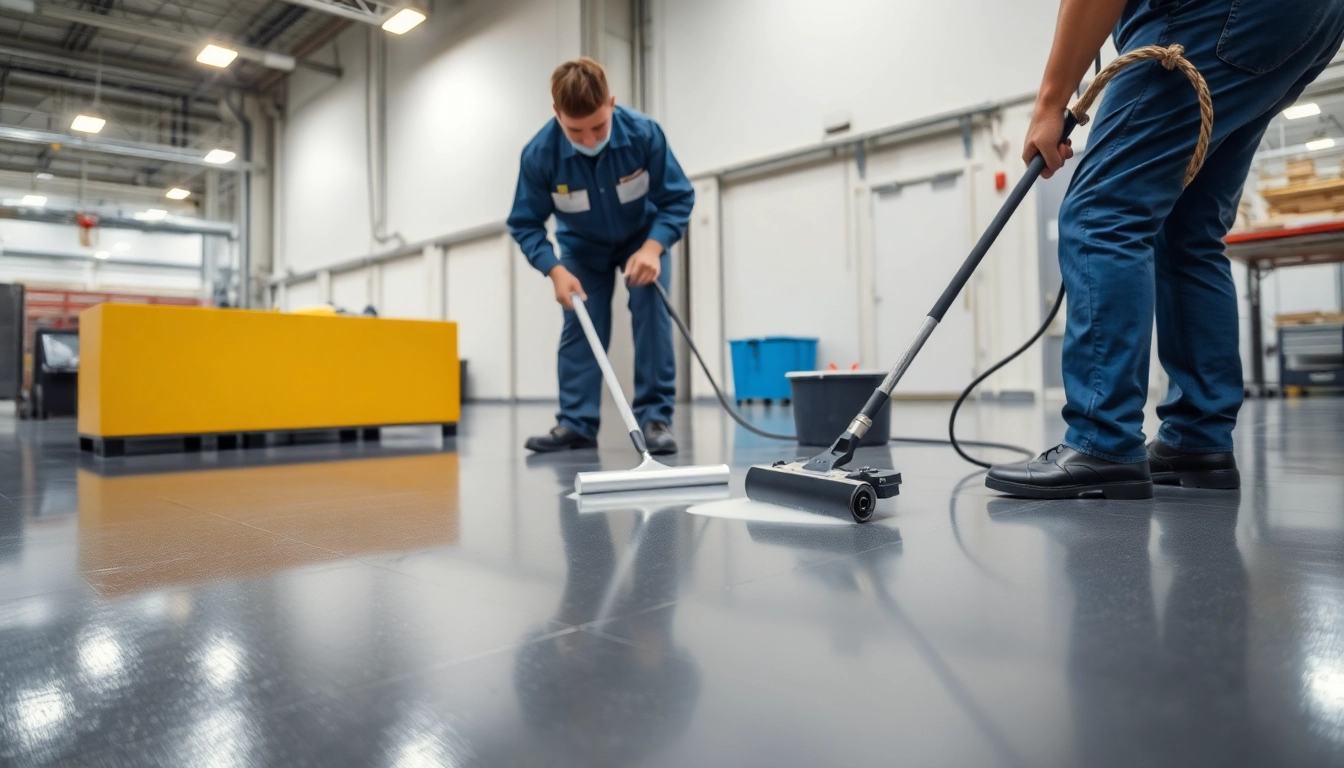Understanding the Benefits of Epoxy Resin Flooring
Epoxy resin flooring has become a leading choice for many commercial, industrial, and even residential spaces in Birmingham and beyond. Its popularity stems from a combination of durability, cost-effectiveness, and aesthetic appeal. For property owners seeking a long-lasting and visually striking surface, partnering with expert epoxy resin flooring contractors Birmingham can guarantee a successful project tailored to their specific needs.
Durability and Resistance for Commercial Spaces
One of the primary reasons epoxy floors are favored in commercial settings is their exceptional durability. These surfaces withstand heavy foot traffic, machinery, and chemical spills without significant wear. For instance, warehouses and manufacturing units in Birmingham benefit from epoxy’s resistance to abrasion, impact, and chemical corrosion, ensuring the flooring remains functional and attractive over years of service.
Cost-Effective Surface Protection
Epoxy coatings provide a high return on investment by extending the lifespan of concrete slabs and reducing maintenance expenses. Property owners save money over time by avoiding frequent repairs or replacements. The initial investment is often offset by the minimized downtime and lower ongoing care requirements, making epoxy a smart financial decision for Birmingham businesses seeking efficient solutions.
Enhanced Aesthetics and Customization Options
Beyond strength, epoxy resins offer customizable aesthetics. From sleek, shiny finishes to vibrant colors and decorative flakes, epoxy floors can enhance the visual appeal of any space. This versatility allows Birmingham offices, showrooms, and retail outlets to create a unique ambiance aligned with their branding and interior design preferences.
Choosing the Right Epoxy Resin Flooring Contractor in Birmingham
Key Qualifications and Certifications to Look For
Selecting a reputable contractor is crucial to achieving optimal results. The ideal epoxy flooring contractor in Birmingham should possess relevant industry certifications, official membership associations, and extensive experience with varied project types. Certifications from recognized bodies such as the Polyurea Business Association or epoxy-specific training programs demonstrate a commitment to quality and safety standards.
Questions to Ask Before Hiring
To ensure your project is in capable hands, prepare a list of questions, including:
- What is your experience with commercial epoxy flooring installations?
- Can you provide references or case studies of similar projects?
- What surface preparation processes do you follow?
- What warranties and post-installation support do you offer?
Clear communication during the consultation phase helps prevent surprises and sets realistic expectations for timelines and costs.
Reading Customer Reviews and Ratings
Researching online reviews provides insight into a contractor’s reputation and project quality. Platforms like Yelp or local directories offer genuine customer feedback. For example, contractors with consistent 4+ star ratings and detailed reviews usually deliver reliable results. Engaging with previous clients can reveal practical details about the contractor’s professionalism, punctuality, and craftsmanship.
Inspection and Preparation Before Installation
Surface Assessment and Repairs
Before applying epoxy, a thorough inspection of the existing concrete surface is essential. Any cracks, spalling, or uneven areas must be repaired to prevent future issues. Proper surface profiling enhances adhesion, ensuring the epoxy coating adheres firmly and lasts longer.
Material Selection Based on Usage Needs
Depending on the specific use, different epoxy formulations and additives are appropriate. Heavy-traffic areas may require high-build epoxy with enhanced impact resistance, while spaces exposed to chemicals benefit from chemically resistant variants. Consulting with experienced contractors about the right product can optimize durability and performance.
Scheduling and Climate Considerations
Proper timing is critical for successful epoxy installation. Birmingham’s fluctuating temperatures and humidity levels can influence curing times and adhesion. Scheduling during mild weather conditions and ensuring the surface is fully dry and clean are vital steps in guaranteeing a flawless finish.
The Installation Process of Epoxy Floors in Birmingham
Surface Cleaning and Priming
The installation begins with meticulous cleaning to remove debris, oils, and moisture. A primer or bonding agent is then applied to enhance adhesion between the existing surface and the epoxy layer. This step is crucial for preventing future delamination or peeling.
Layer Application Techniques for Seamless Finish
Epoxy is typically applied in multiple layers, each carefully spread using rollers or squeegees to ensure uniform coverage. Techniques such as broadcast layering with decorative chips can add aesthetic appeal and slip resistance. Skilled contractors manage the thickness and curing processes to achieve a smooth, seamless surface.
Curing Time and Final Inspection
Following application, epoxy requires a curing period, which can range from 24 hours to several days depending on the product and environmental conditions. Final inspection ensures that the coating has cured properly, exhibits no bubbles or imperfections, and meets quality standards before the space is reopened.
Maintaining and Extending the Life of Epoxy Floors
Regular Cleaning and Spill Management
Consistent cleaning prevents grime buildup that can compromise the coating’s integrity. Gentle sweeping and damp mopping with mild cleaners are recommended. Promptly wiping up spills, especially oils and chemicals, prevents staining and surface degradation.
Addressing Cracks and Wear Early
Monitoring the surface for signs of cracks or chips allows for early repairs. Small cracks can be sealed with epoxy repair kits, preventing further damage. Addressing wear early maintains the floor’s appearance and structural soundness.
Upgrades and Recoating for Long-Term Durability
Over time, even durable epoxy floors may need recoating or upgrades to restore their original appearance and resistance. Applying a new layer of epoxy or supplementing with decorative finishes can prolong the lifespan, especially in heavily used areas.
